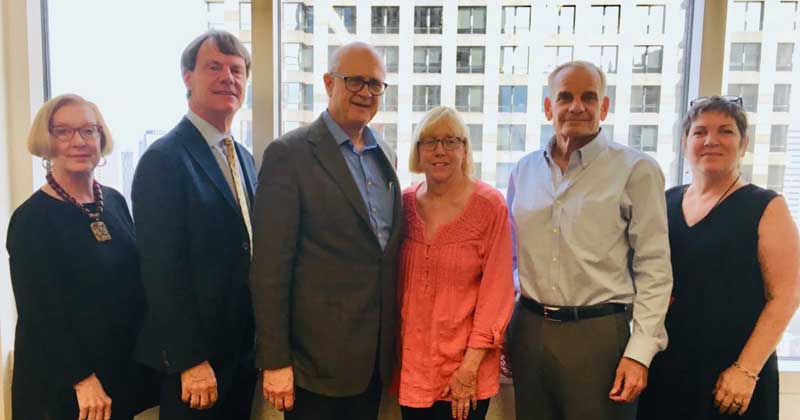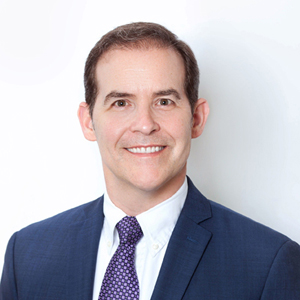With Thanksgiving approaching, you may be feeling the stress of the holiday season. Holidays can be overwhelming for some individuals, especially when symptoms of depression and bipolar interfere with a time we expect to be comforting. The good thing about this time of year is that we are naturally called to a very effective coping mechanism: gratitude.
Gratitude practices for you and your family
Research around gratitude has demonstrated positive impacts on symptoms associated with depression and bipolar. Researchers Robert Emmons and Michael McCullough studied this by asking participants to write a few sentences each week.
One group wrote about things they were grateful for that occurred during the week. A second group wrote about irritations or things that had displeased them, and the third wrote about events that affected them (with no emphasis on them being positive or negative). After 10 weeks, those who wrote about gratitude were more optimistic and felt better about their lives. Surprisingly, they also exercised more and had fewer visits to physicians than those who focused on sources of aggravation. 1
As the temperatures chill and family gatherings take up our energy think about how practicing gratitude can shift your mental space. Here are some ideas that may help prompt a gratitude practice for you and your family.
Write a Thank You Note. Has someone helped you out recently? Does someone support you who rarely gets recognition? Take a moment to jot down your appreciation in a note. Writing thanks to friends, families, and coworkers can remind us how much support and care we have in our communities.
Keep a Gratitude Journal. Establishing a special place to document your gratitude can be a useful tool in keeping track of all you have to be appreciative of. Having a hard day? Reread the journal and remind yourself of your practice.
Volunteer. Taking time to connect with your favorite organization can remind you about folks in your community who are in need. Making time to give to others can be a rewarding experience and is better when accompanied by friends and family! For volunteering opportunities at DBSA, please reach out to Hannah, Program Manager at hzeller@dbsalliance.org
Make Gratitude a Family Practice. Gratitude is best when shared! Think about incorporating gratitude into your daily meals with your family. Have each member express something they are grateful for. Sharing gratitude with your family can be very helpful in establishing your gratitude practice.
1 Harvard Health Publishing. “Giving Thanks Can Make You Happier.” Harvard Health. Accessed November 15, 2019. https://www.health.harvard.edu/healthbeat/giving-thanks-can-make-you-happier.
Note from the DBSA Board of Directors

Like you, we are peers, parents, clinicians, and mental health advocates.
This year, we have decided to take our support to another level by offering you the opportunity to double your impact. As a Board, we have raised $50,000 that will be used to match dollar for dollar any gift you give now through Giving Tuesday, December 3rd.
Would you join us in supporting this important work by making a donation at double the impact today?
P.S. If you’re planning on making purchases through Amazon this season, consider opting into the AmazonSmile program that donates a portion of the proceeds of your purchase to DBSA at no additional cost to you.
Expanding DBSA’s peer specialist training for Veterans
One of the ways that DBSA leads in valuing peer support specialists is by creating one of the first peer specialist education programs. Our course is certified by the Department of Veterans Affairs (VA) and the Illinois Certification Board as meeting training requirements toward individual certification. Our first course was created in 2004 and has been given to over 1,000 individuals to date. In 2015, DBSA created a Veteran peer specialist course for the VA, and approximately 800 Veterans have successfully completed this course.
DBSA dedicates resources to continually evaluate and enhance the peer specialist education program to elevate the profession and broaden acceptance and adoption of peer support specialists. This year, we updated the 37-hour program to a 5-Week Peer Specialist Course. The inaugural 5-week course was offered in September and is recognized by the VA to meet the educational requirement toward Veteran Peer Specialist certification. This new educational offering provides students with both practical knowledge and the opportunity to develop skills that are needed immediately on the job.
The VA has enrolled ten Veteran peer apprentices employed at VA facilities around the country to complete this new course by the end of the year. DBSA anticipates the VA will be enrolling additional peer apprentices in 2020 as the department implements the Peer Act—a Congressional mandate to employ up to 30 peer specialists in patient-aligned care teams at VA medical centers.
Learn more about Peer Specialist Training
DBSA—founded on peer support and still committed
DBSA has revamped our official position statements which are available on our website. We will be highlighting one of our position statements monthly in one of our articles. This month, we go back to where it all began, peer support.
DBSA was founded on peer support and values peer specialists throughout the delivery of healthcare to treat mental health conditions. Peer specialists can and should be employed in both the traditional mental health delivery system and in integrated or collaborative care settings that treat both physical and mental health. Peer specialists are individuals who use their own personal, lived experience of recovering from mental illness to support others in recovery.
DBSA advocates for regulatory and legislative policies that improve the adoption and codify the use of peer support services as best in class practices for government-delivered health care programs, the Department of Veterans Affairs and through commercial insurance plans. We also seek opportunities to promote the value of peer support services in media intended to reach clinicians and organizational leaders who can authorize the use of peer support specialists and identify and train peer specialists to be spokespersons for the profession and the value of the service they deliver.
DBSA’s Peer Support Position Statement
Parent and Caregiver Corner
Managing Winter Stress
With winter approaching, there are many exciting things that you and your family may be looking forward to – time off school, celebrations, family time, travel, and more. For children living with mood disorders, these changes to a normal routine can cause some added stress.
Here are a few tips to consider when confronted with winter stresses:
Maintain Schedules
Keeping waking, bedtimes, and meal times consistent can help keep days feel more regular, even with the shorter daylight we experience at this time of year.
Plan
But remain flexible. Let your child know what expectations are for certain days but discuss with them that changes might be needed. This time of year, is filled with excitement, keeping expectations manageable with your children will help in ensuring there aren’t as many mid-day meltdowns.
Think Flexible
For special visits or events, communicate with family and friends ahead of time if you anticipate the need for flexibility. Sharing these expectations early with others will help you feel more prepared for the day ahead.
Make time for Breaks
Create a signal to share with your child if they need a break. Decide in advance what a good break would be to help, whether that is a quiet walk, listening to music, drawing, whatever works best to calm down!
Find Support with DBSA
Many families find support with DBSA programs. Remember, taking time to care for your mental health, is taking good quality time for yourself. Consider joining an in-person or online support group. As a parent, you also may benefit from joining our Balanced Mind Parent Network, a community for parents who are raising children living with mood disorders.
Life Unlimited: George Brooks

Around age 9, I noticed that I didn’t process thoughts and ideas the same way that my peers did. I was labeled as “overly-emotional”. I knew that mental illness was a “thing” even at that young age. However, the level of ignorance and unawareness, especially in the black community, made things markedly more difficult throughout my formative years. My worst was two years ago. I was in the wrong place and surrounded by the wrong people. I was literally dying and wasting away, but thankfully, members of my family and loved ones were able to help me in recovery.
I knew I had to clean up my mental and emotional diet. Gone were the days of watching the news and morbid shows and associating with the wrong crowd. I now find out about the world by venturing out into it. I also, relocated from Memphis to Dallas, which is arguably the greatest thing I’ve ever done for myself. I’ve had to overcome self-doubt, disloyalty, being obsessed with my condition, and the fear of making that one huge step toward healing and recovery. I am continuing to pursue my goals and establish positive, beneficial relationships with those from my past.
I’ve learned that I’m not perfect and that I do have my “unpleasant moments”, but I have learned to be humble and listen. I’m continuing to learn to adapt to the ebbs and flows of my family and friends in order to live a productive, loving, and happy life. I stay on the path to wellness, participating in therapy and remaining medicinally compliant. I volunteer with the homeless and mentally ill (www.mettaassociation.org). I am active in church. Mainly, I have long term plans for my family and myself, but just go one day at a time, moment by moment.
Ask the Doc
Note from Michael

As a gay man, I’ve been on my own journey to share this aspect of my life with others. At times I feel very safe and am willing to be open. Other times, I won’t even entertain the idea. Then there are those “in-between” moments. Do I or don’t I? Can I trust or not? Is disclosing to this person safe or will I be judged, rejected, or stigmatized?
At the same time, I’ve interacted with individuals living with bipolar or depression who are on their own journey. Some come across confident and secure with disclosing their condition, as well as the progress and wellness journey that they’re experiencing. I’ve also talked with peers who remain guarded and selective when and with whom they share this aspect of their life. I’ve empathized with their struggle as they wonder whether those in their lives will offer love and support or distance and awkwardness. I’ve had the chance to celebrate with those who stepped beyond their comfort level, disclosed that they live with depression or bipolar, and received an outpouring of support and encouragement – responses that embraced their vulnerability and led to deeper connectedness.
What led me to make such a comparison is based on a series of recent experiences I’ve had with other corporate, nonprofit and government representatives who reinforced over and over how much they value hearing from and interacting with people living with depression or bipolar disorder. I found myself appreciating that the desire to hear from, learn from, and support people with mood disorders is seemingly expanding and improving.
“Coming out” to others with your mental health condition is a personal decision. It requires a readiness that no one should judge. My hope for those of you wrestling with these questions have supportive people in your lives to serve as a sounding board and to offer encouragement and perspective. My wish for you is to also experience positive responses that lead to deeper relationships with whom you choose to share your story. And in those moments when you decide you are not ready, I encourage you to be gentle with yourself and remember…it’s a journey.
Wellness Tracker will close on December 31st, 2019
DBSA would like to thank you for being part of our wellness community. Though we remain committed to offering wellness tools on www.DBSAlliance.org, we have decided to close the Facing Us Clubhouse and Wellness Tracker website and mobile app on December 31, 2019.
As an organization, there were two main factors that led to our decision:
- Over the years, we’ve seen a significant decrease in Facing Us Clubhouse and Wellness Tracker registrants and return users
- There are a variety of other online wellness tracking tools with leading-edge technology that we cannot contend with based on resources
Please take time to login and download your journals, wellness plans, and tracker reports here: https://www.facingus.org/account/login.
DBSA is committed to offering wellness tools to help you in recovery. We believe there are many paths to wellness, and we’re honored to be on your path along the way! In 2020, we will be adding new wellness tools including printable, easy-to-use trackers and journals. Stay tuned for more information by signing up to receive our monthly newsletter.
Thanks for allowing DBSA to be your leading experts in mood disorders. If you have any questions, please reach out to programs@dbsalliance.org.
esperanza: Selena Gomez Finds Her Personal Power and Peace

Wellness Tips
Don’t take on too much
It can be easy to over-commit yourself or become overwhelmed during the holiday season. Pace yourself and decide on your limits, remember to cut out any activities that can wait or are not important.
Deep Breaths
Make time in your day to stop and focus on your breathing. Focusing on your breathing a few minutes each day can improve your mood.
Show Kindness
Kindness promotes empathy and happiness and a small gesture of kindness can greatly improve your mood.

